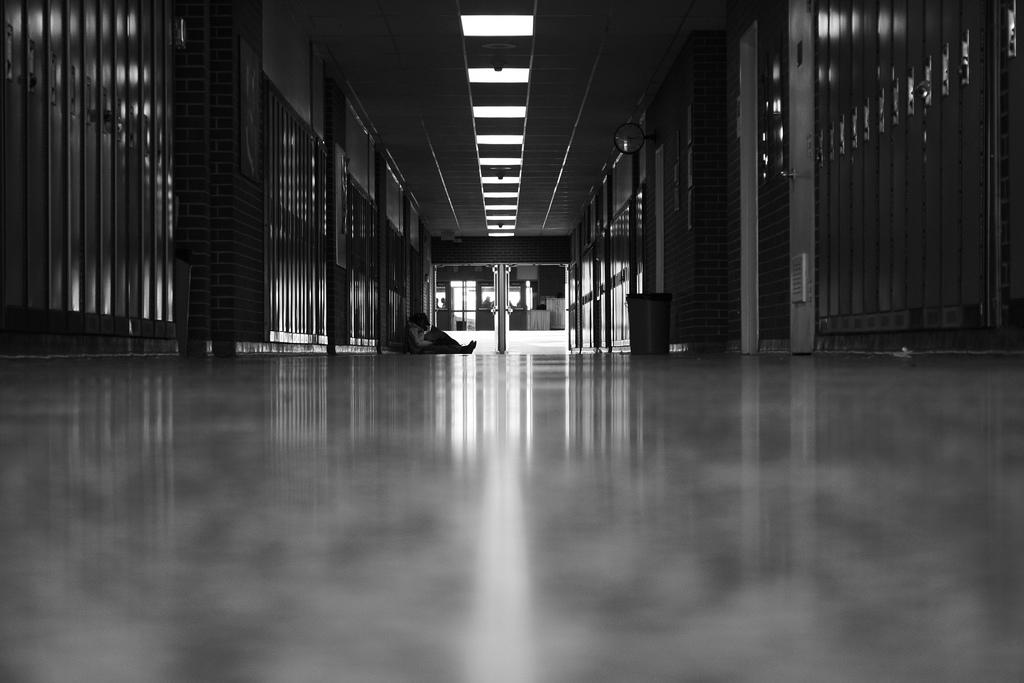 Until the age of 7 I grew up in an urban area then moved to a suburban area. I remember being taught that one must be tough especially when it came down to dealing with family matters. Growing up with such a big family from an urban area there tended to always be something going on. However, as children we were always taught not to talk about our problems to others. I vividly remember being told “what happens in this house stays in this house” and a lot happened in that house. However, I realized that within my other family members house there were a lot more happening. The difference was in my house we talked about our issues amongst ourselves, especially once we moved, but in my family members’ house issues were rarely spoken about.
Until the age of 7 I grew up in an urban area then moved to a suburban area. I remember being taught that one must be tough especially when it came down to dealing with family matters. Growing up with such a big family from an urban area there tended to always be something going on. However, as children we were always taught not to talk about our problems to others. I vividly remember being told “what happens in this house stays in this house” and a lot happened in that house. However, I realized that within my other family members house there were a lot more happening. The difference was in my house we talked about our issues amongst ourselves, especially once we moved, but in my family members’ house issues were rarely spoken about.
It gotten to a point that I realized that there were possibility mental illnesses being formed. But remember there’s an unwritten rule; “what happens in this house stays in this house”. I noticed that mental illness wasn’t even an option. Then I realized this wasn’t just something that was going on within my family. After finding interest in this topic I realized that in urban areas there are high rates of mental issues but they aren’t really addressed.
 Studies say that some of the reasons that mental illnesses aren’t reported is because victims are afraid they would not be taken serious, they may be made fun of, or they would be thought of being weak. In addition, there is a lack of awareness and funding in these areas for mental illnesses.
Studies say that some of the reasons that mental illnesses aren’t reported is because victims are afraid they would not be taken serious, they may be made fun of, or they would be thought of being weak. In addition, there is a lack of awareness and funding in these areas for mental illnesses.
Before we talk about why mental issues aren’t being handled in urban areas I ask where do they originate from?
Many the mental illnesses that urban residents acquire originate from seeing struggle and heinous violence day to day. For instance, 47% of African Americans in urban areas have witnesses murder; 75% witness robbery, stabbing, shooting, or homicide within their elementary to high school years. In general, the crime rates in urban areas are entirely more than in rural areas.
In addition to these horrific statistics, per the National Institute of mental Health 1 out of 3 African Americans who need mental health care actually receive the care they need. I strongly believe this is due to the lack of awareness mental health has in urban areas.
For instance, very few people know what causes mental health issues. Do you?
Mental health issues are caused by stress. Stress is the unspecific physiological and psychological reaction to perceived threats to our physical reaction, psychological or social integrity. In urban areas people tend to have a survive not live mentality. the don’t feel they have their “own” space and violence is constantly all around them. Though these issues may not seem like the are directly effecting urban resident’s mental health it is known that it is.
This is starting to become a huge issue for Americans because America is showing signs of moving towards creating more urban areas due to the fast pace lifestyle that we are starting to acquire. There is research showing that there is a 20% increase in anxiety and 40% increase in mood disorder rates in urban areas.
Due to these alarming rates of mental health deficiencies increasing there are organizations that are working to improve mental health in urban areas. Take The Urban Mental Health Alliance (UMHA) , they are a non-profit organization that advocates for the wellness and mental health of urban families and communities. The UMHA offers an 8-hr training course where one could get certified in mental health first aid. This course teaches how to help someone who is developing a mental issue or experiencing a mental health crisis.
In addition to helping those with the mental issue there are programs that work to make the environment of urban areas more conducive to healthy mental stability. For instance, there is an organization that works to make urban areas visually more attractive. Have you heard that when you are around nicer things you feel better? That’s that goal of these types of organizations. They also work towards creating more discussions and better health care facilities.
Personally, I know simply bring awareness to mental health will help people like those in my family that live in urban areas. Thus, simple awareness is empowering and can be lifesaving.

